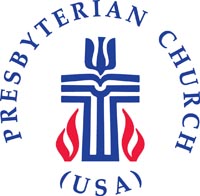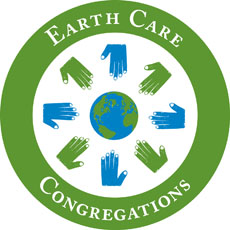Purpose Statement
Ordinary people testifying to the extraordinary light found in our Lord Jesus Christ. “For it is God who said, ‘Let light shine out of darkness,’ who has shone in our hearts to give the light of the knowledge of the glory of God in the face of Jesus Christ. But we have this treasure in clay jars, so that it may be made clear that this extraordinary power belongs to God and does not come from us.” (2 Corinthians 4:6-7)
Mission Statement
With God’s help, Westminster Presbyterian Church fosters a caring, diverse, and deeply spiritual community that nurtures lives of faith, hope, and love. Through prayer and with thanksgiving for God’s grace, we seek to grow in the spirit of Jesus Christ, joyfully committing ourselves to worship, study, and service in the local community and the world.
Visioning Covenant
As we look to Westminster’s future, we are truly hopeful for “God-Sized Dreams” to become realities. In these efforts, we seek to let our light shine before others (Matthew 5:16), to become ministers of reconciliation loving all compassionately (because God loved us first), and to transform and renew our community and world. As unique individuals, as a collective congregation and recognizing we are all children of God, we seek to:
• grow in the knowledge of God revealed in Jesus and in our own personal and communal experiences
• love one another, being slow to judge and quick to pardon
• embody God’s unifying grace and forgiveness in all our relationships, in all aspects of our lives
• be open-minded to the diversity of opinions in our congregation and the world, and to consider our opinions in light of the command to love God and our neighbor, and
• promote the Kingdom of God on earth, knowing that nothing can separate us from God’s love.
We enter into this covenant freely, promising to abide by its claim on our lives.
Who We Are
As people who stand in the Reformed tradition, the members of Westminster Presbyterian Church recognize that the journey of faith is a life-long struggle and seek to pursue, announce, personify, and practice the Good News of reconciliation and grace in Jesus Christ. Founded in 1873, Westminster welcomes all who are continually being formed and reformed into disciples of Jesus Christ. Westminster values a rich tradition of worship, Christian education and nurture, and ministries of caring and compassion.
The worship life of the church is traditional, Presbyterian, and Reformed following the pattern set forth in the Directory for Worship and the Book of Common Worship. A worshipful atmosphere and classical church music proclaim the sovereignty of God, the authority of scripture, and the liberating grace of Jesus Christ.
We are members of a denomination in which people have felt called to re-articulate the faith in relation to the issues and challenges of each new historical era. Our Book of Confessions embraces eleven affirmations of faith dating from the third century to the twentieth century.
Westminster is intentional about Christian education and nurture. We offer a foundation in the Bible while promoting an environment that values theological diversity. Westminster strives to model openness, acceptance, and tolerance.
Westminster is a caring and compassionate church. We strive to balance ministry to our members with outreach in the community. To us, loving God with heart, soul, mind, and strength means the commitment of all our many gifts to the service and glory of God.
While Westminster Presbyterian Church is a diverse congregation that is not united on any one issue, we seek to be united on what it means to be the Church. As our Lord welcomes all to his table, we seek to welcome all in our worship, baptism, communion, marriage, fellowship, teaching and other expressions of the faith found in our community. We welcome all people who seek to join us on our journey to serve our Lord Jesus Christ.
The Session of Westminster
In the Presbyterian Church (U.S.A.), of which Westminster is a part, the congregation elects ruling elders (members of the congregation) and teaching elders (pastors) to serve together as the Session to lead the church’s vision, mission, and ministries. At Westminster, there are 36 ruling elders in three classes serving three-year terms. The Session meets once a month and is moderated by one of the pastors. The Session does its work through committees and varied other teams of people who implement the goals and mission of each ministry area in the life of the church.
Westminster Is A Matthew 25 Congregation

Matthew 25:31–46 calls all of us to engage in the world around us, so our faith comes alive, and we wake up to new possibilities. We recognize Christ’s urgent call to be a church of action, where God’s love, justice, and mercy shine forth and are contagious.
Environmental Stewardship
At Westminster
In 1990 the Presbyterian Church declared restoring creation as a central concern of the church and recognized that incorporating restoration into its life and mission of every level is essential. At WPC, the Environmental Stewardship Committee works to meet these responsibilities. As an Earth Care Congregation, we focus our efforts in four categories. Examples include:
Worship
Encourage sermons, hymns, and prayers to remind us “the earth is the Lord’s.”
Education
Put reminders to conserve on light switches, faucets, and paper towel dispensers, host guest speakers, write “Caring for Creation” thoughts for the newsletter.
Facilities
Provide recycling bins, promote energy conservation (lighting upgrades, programmable thermostats), monitor water and energy usage, facilitate “green,” meals.
Recycling
Collect batteries and paper goods for recycling in the church office.
The Presbyterian Church (U.S.A.)

The Presbyterian Church (U.S.A.), with denominational offices in Louisville, Kentucky, has approximately 2.3 million members, more than 10,000 congregations and 14,000 ordained and active ministers.
Presbyterians trace their history to the 16th century and the Protestant Reformation. Our heritage, and much of what we believe, began with John Calvin (1509-1564), whose writings crystallized much of the Reformed thinking that came before him. www.pcusa.org
